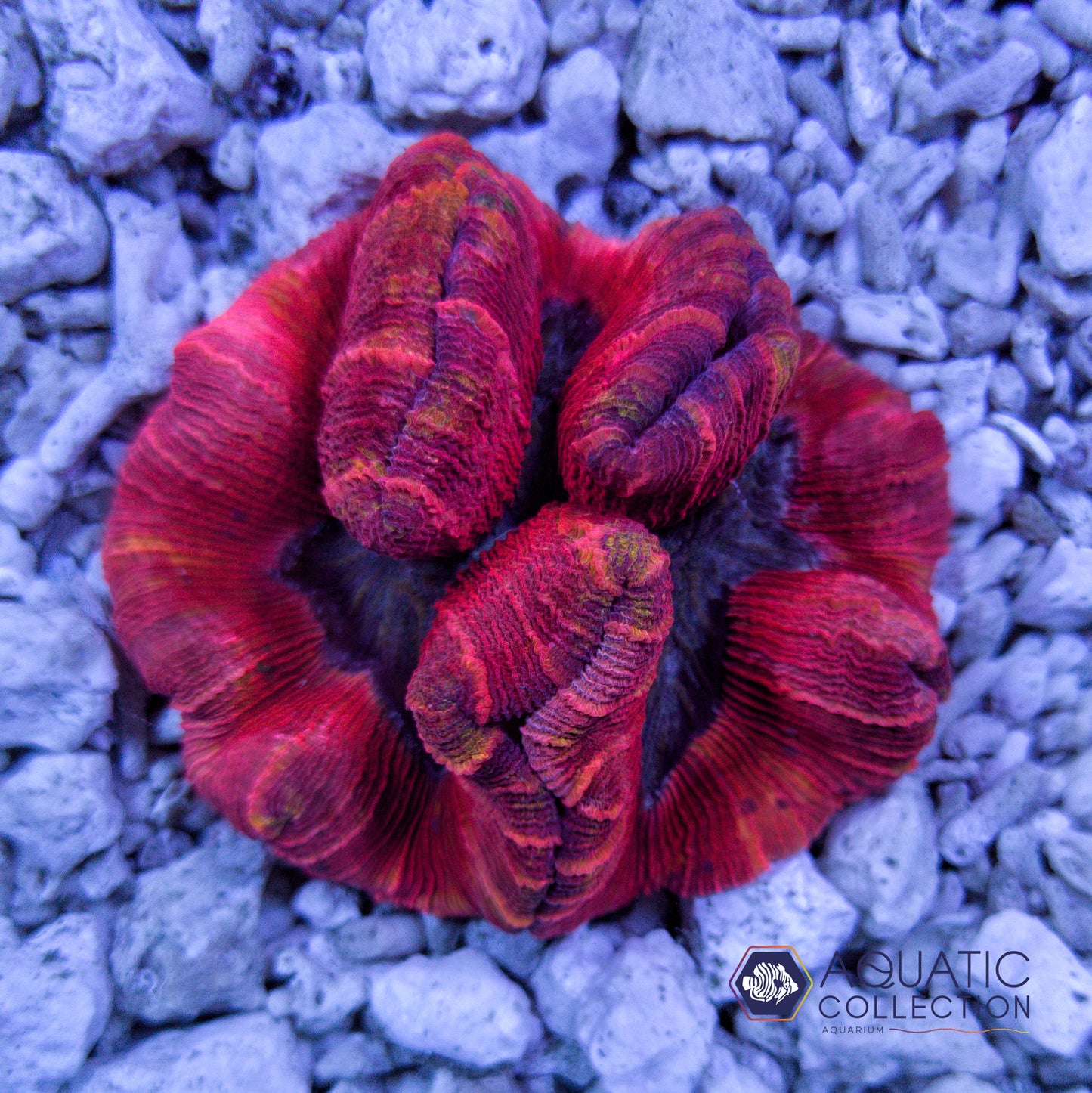Aquatic Collection Aquarium
Trachyphyllia
Trachyphyllia
Couldn't load pickup availability
Species: Trachyphyllia geoffroyi
Approximate size: 3" - 3.5"
Colors: Red, Purple, Orange, Yellow
Trachyphyllia corals, often known as "Trachy" or "Open Brain Corals," are a type of coral found in reef environments. They're characterized by their large, fleshy, and often brightly colored mouths and ridges. Here's a bit more detail:
- Appearance: Trachyphyllia corals have a distinct appearance with a large, lobed, and somewhat wrinkled structure. The surface can be quite colorful, with shades ranging from greens and reds to blues and purples. The corals are named for their brain-like appearance, with grooves and ridges that create a textured, somewhat convoluted surface.
- Size: They can vary in size, but typically they grow to be several inches across. Some species can reach up to 12 inches or more in diameter.
- Habitat: These corals are usually found in shallow, tropical reef environments. They prefer areas with moderate water movement and light, although they can adapt to a range of conditions.
- Behavior: Trachyphyllia corals are generally solitary, but they can sometimes form small clusters. They have a unique feeding behavior where they extend their tentacles at night to catch plankton and small organisms.
- Care in Aquariums: In a marine aquarium setting, Trachyphyllia corals are relatively hardy but still require proper care. They need stable water parameters, moderate lighting, and regular feeding to thrive. They are also sensitive to aggressive tankmates and high flow rates.
Overall, Trachyphyllia corals are valued for their striking appearance and can be a captivating addition to a reef tank or a natural reef environment.
These corals are for saltwater aquariums only.
This is the exact specimen you will receive, however, due to differences in tank lighting and screen settings, this item may look slightly different in your aquarium.
For measurement reference use the picture with the black grid and the ruler.
For acclimation details see here.
Share


